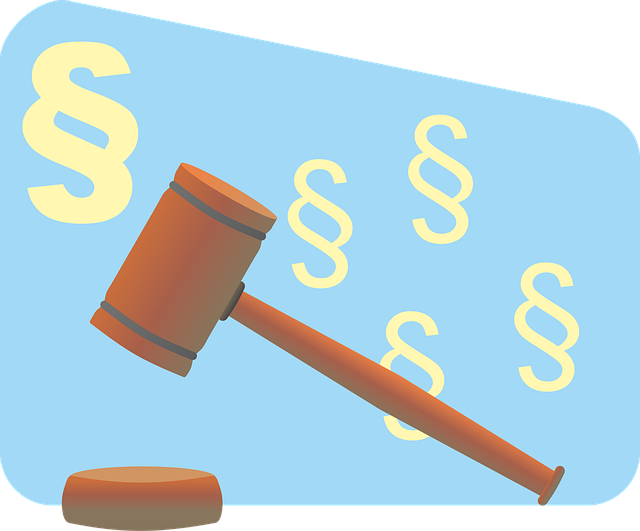Regulatory fraud laws are crucial for maintaining integrity in industries with complex financial structures, protecting consumers and the public from deceptive practices. Plea bargaining raises ethical questions regarding false confessions and disparities across jurisdictions, demanding fair conduct. The text explores the far-reaching impact of regulatory fraud and advocates for a comprehensive reform approach beyond traditional criminal defense. It emphasizes the need for collaboration among entities to enhance transparency and accountability, focusing on the ethical implications of plea bargaining decisions to prevent corporate fraud while ensuring fairness in the criminal justice system.
In an era where regulatory compliance is paramount, understanding Regulatory Fraud Laws is crucial for businesses and individuals alike. This article delves into a comprehensive framework surrounding these laws, focusing on key aspects such as ethical implications of plea bargaining decisions and the navigation of ensuing consequences. By exploring reform and prevention strategies, readers will gain insights into mitigating risks and fostering ethical conduct within their organizations. Unravel the complexities and ensure compliance with the evolving landscape of fraud regulations.
- Understanding Regulatory Fraud Laws: A Framework
- Ethical Implications: Plea Bargaining's Impact
- Navigating Consequences: Reform and Prevention
Understanding Regulatory Fraud Laws: A Framework

Regulatory fraud laws are a critical component of maintaining integrity within various industries, especially those with complex financial structures and high-stakes transactions. These laws are designed to protect consumers, investors, and the public from deceptive practices that can have severe economic and social consequences. Understanding the framework of these regulations is essential for both legal practitioners and business leaders alike.
The ethical implications of plea bargaining decisions play a significant role in this context. Plea bargaining, where defendants agree to plead guilty in exchange for reduced charges or sentences, must be conducted fairly and transparently. It’s crucial for lawyers specializing in white-collar and economic crimes to ensure their clients understand the potential consequences of such agreements. This process demands a delicate balance between holding individuals accountable for regulatory violations and considering the broader impact on businesses and society, especially when dealing with complex cases involving general criminal defense strategies.
Ethical Implications: Plea Bargaining's Impact

The practice of plea bargaining raises significant ethical questions regarding justice and fairness within the legal system. When defendants agree to plead guilty in exchange for reduced sentences or charges, it can have profound implications for both individuals and society at large. One of the key concerns is the potential for encouraging false confessions, as individuals might admit guilt to avoid harsher penalties. This compromises the integrity of the judicial process, as genuine guilt becomes indistinguishable from coerced admissions.
Moreover, plea bargaining can lead to disparities across the country, where the outcome of a case may heavily depend on the skill and resources of the defense attorney, the local prosecutor’s policies, and even the jurisdiction’s legal culture. This inconsistency raises questions about equality before the law, especially when some defendants are offered complete dismissal of all charges while others face significant penalties for similar offenses. The ethical implications demand careful consideration to ensure that plea bargaining serves the purpose of a fair and just legal system without sacrificing individual rights and equal treatment.
Navigating Consequences: Reform and Prevention

Navigating Consequences: Reform and Prevention
The consequences of regulatory fraud can be severe, impacting not only individuals but also across the country’s economic landscape. As such, there’s a pressing need for reform that goes beyond general criminal defense measures. The process of plea bargaining, with its ethical implications, plays a pivotal role in shaping these outcomes. Prosecutors’ decisions regarding plea deals have far-reaching effects, potentially influencing companies’ responses to regulatory scrutiny and the overall culture of compliance.
This calls for a multifaceted approach involving not just law enforcement agencies but also philanthropic and political communities. By fostering transparency and accountability, these groups can help mitigate the allure of fraudulent practices. Prevention strategies should focus on strengthening regulatory frameworks while encouraging corporate responsibility. Ultimately, addressing the ethical dilemmas within plea bargaining mechanisms is crucial to ensuring that regulatory fraud laws serve their intended purpose without undermining fairness in the criminal justice system.
Regulatory fraud laws, while crucial in maintaining integrity within industries, must be balanced with the ethical implications of plea bargaining decisions. As we’ve explored through understanding the framework, navigating consequences, and exploring reform and prevention strategies, these legal tools can significantly impact businesses and individuals alike. Considering the far-reaching effects of plea bargains on the perception of justice and corporate responsibility, it’s imperative to critically examine their role in regulatory fraud cases. By doing so, we can strive for a more balanced approach that fosters both accountability and fairness, ultimately enhancing the effectiveness of our legal systems in deterring fraudulent activities.






